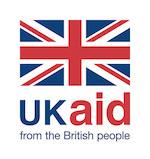This is the final blog post of a four-part blog series highlighting the work of mobile network operators (MNOs) in delivering humanitarian products and services. The blog series has shed light on MNOs features in our recent report ‘Partnering During Crisis: The Shared Value of Partnerships between Mobile Network Operators and Humanitarian Organisations‘ and how operators are involved in the humanitarian sector, as well as their role in supporting the response to COVID-19. This final blog focuses on JazzCash in Pakistan.
Read the full report in English, and the executive summary and JazzCash case study in Urdu.
Pakistan has a complex and multifaceted humanitarian situation. The country hosts more than one million refugees from Afghanistan and over the years millions of citizens have been affected by conflict, natural disasters and the effects of climate change. Jazz, one of Pakistan’s leading MNOs and its subsidiary mobile money service JazzCash are keen to forge partnerships with NGOs in Pakistan to deliver impactful products and services for those people affected by crisis in the country.
The overarching vision for Jazz and JazzCash is to support sustainable solutions for all segments of society and have committed time, money and personnel to the development of relevant products and services for all customers.
“Our aim is very clear. [JazzCash’s] ultimate aim is that every Pakistani that needs to have access to financial services, should have services to financial services — ubiquitous access.”
Innovative solutions
The Jazz and JazzCash teams realised that as they are proactively working to include vulnerable groups in Pakistan in their services they have a common interest with the numerous development and humanitarian actors that are delivering services to the same groups. To this end they have been adapting the operational models through which they partner with these agencies to drive uptake impactful products and services. Some recent examples include rolling out smart fleet management for NGOs using internet of things (IOT) technology and connecting the Fata Disaster Management Authority (FDMA) with a start-up that uses drones to deliver essentials during a crisis through one of their local tech incubators. With this change in approach in mind, Jazz has is hoping to move away from responding to crises in an ad hoc manner and pivoting towards designing and investing in targeted solutions that can both be leveraged during a crisis and benefit low-income populations in their daily lives.
“We want to help humanitarians move past simple services and help beneficiaries access a life-enhancing suite of options.”
The power of partnerships
In the drive to create solutions that truly meet the needs of the consumers Jazz and JazzCash hope to reach, they recognise the immense value that effective partnerships bring. They believe that partnerships that deliver services developed in collaboration are likely to have a socioeconomic impact and support financial inclusion for communities at the bottom of the pyramid. This could have huge benefit when looking at cash transfers, where Jazz are able to provide end-to-end technology and training to users to bring them into the formal financial sector. Looking to the future they want to ensure that they create partnerships with a shared long-term vision through which they can support vulnerable groups and iterate over time to drive impact and inclusion.
“The beauty of partnerships in a regular pragmatic approach is that people get to see your outcomes and bring in more parties to help flesh out the approach. Long standing partnerships will help flesh out how you may work together better in the future.”
The COVID-19 Pandemic
Currently, Jazz (along with many operators in Pakistan) are supporting the wider efforts to tackle COVID-19. To date they have provided support in a number of ways, including launching their “Assistance for Free” service, where calls can be made to government offices, doctors and laboratories for free; using their company website to provide statistics from the WHO and the Government as well as allowing customers direct access to a national health chat-bot from within the site; and working with a number of local foundations to distribute food and testing kits to those in need.
To find out more about Jazz/JazzCash Pakistan’s experiences working with humanitarian organisations, read the full report in English and the executive summary and JazzCash Pakistan case study in Urdu.
Also, check out the other three blogs in this four-part series, featuring spotlights on Zain Cash Iraq, Vodacom Mozambique, and Jawwal/Paltel Group Palestine.
You can also hear a discussion between Jerry Mobbs, Managing Director of Vodacom Mozambique, Yazen Altimimi, CEO of Zain Cash Iraq and Belinda Baah and Max Cuvellier of the GSMA on these topics.



